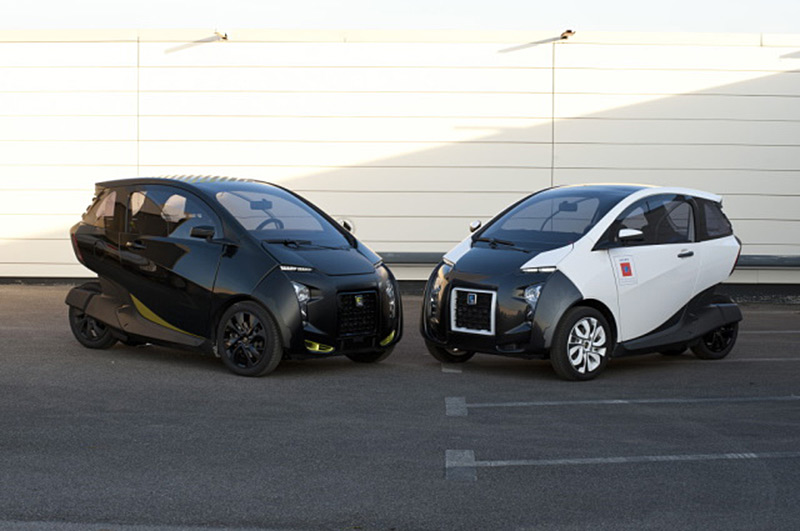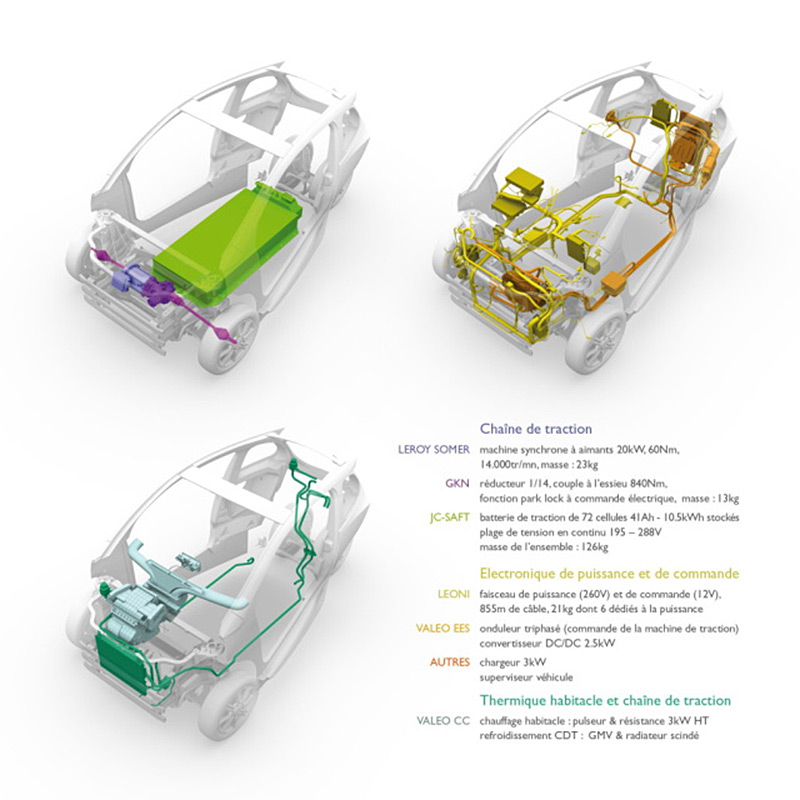“The process by which automobiles evolve is advancing very quickly in what is a profoundly changing environment. In 2012, PSA Peugeot Citroën was the European leader in fuel-efficient cars, with the market’s lowest CO2 emissions. We are stepping up our innovation here at PSA Peugeot Citroën to meet the major challenges of tomorrow’s mobility. Today, we will be showing you pioneering solutions for vehicles that respond to new customer expectations in an ever-more environmentally friendly way.”
With this message, Guillaume Faury, Executive Vice President of Research & Development at PSA Peugeot Citroën, welcomed 100 business and political decision makers, partners and journalists to the Group’s Automotive Design Network (ADN) R&D centre in Vélizy, France for its Innovation Day.
During the event, guests had the opportunity to discover several game-changing technologies developed by PSA Peugeot Citroën to meet the challenges facing the car of the future, including urbanisation, climate change, consumers’ shifting mobility choices and new ways of using vehicles.
In particular, the Group organised a world-premiere presentation of a revolutionary technology called Hybrid Air, a petrol and compressed air full-hybrid solution.
During a press conference, Philippe Varin, Chairman of the Group’s Managing Board, Guillaume Faury, Executive Vice President of Research & Development, Philippe Bouyoux, France’s Deputy General Commissioner for Investment Projects and François Loos, Chairman of the French Environment and Energy Management Agency (ADEME), unveiled a new type of full-hybrid powertrain known as Hybrid Air. This breakthrough technology, which combines a petrol engine and compressed air for energy storage, represents a key step towards the 2l/100km car by 2020.
Other brand new solutions available as from 2013 on Peugeot and Citroën brand vehicles to meet emerging expectations were also presented, including:
EMP2: PSA Peugeot Citroën’s new global modular platform
Participants were treated to a preview of the Group’s new global platform, Efficient Modular Platform 2 (EMP2). This new generation platform provides effective solutions in terms of modularity, equipment and carbon reduction.
Selective Catalytic Reduction (SCR): an innovative technology for eliminating diesel NOx emissions
In 2013, PSA Peugeot Citroën will introduce selective catalytic reduction (SCR) to maintain its leadership in diesel engine efficiency and lower NOx emissions to the level of petrol engines. Because it is positioned upstream from the Diesel Particulate Filter (DPF) with additive, this unique technology makes it possible to both eliminate NOx and reduce fuel consumption (by 2 to 4% from Euro 5 levels).
Lastly, innovations that set the stage for the car of the future were also on display, including:
Eco Hybrid: a broadly accessible hybrid solution
The use of this technology on petrol and diesel vehicles in the B, C and D segments will reduce CO2emissions by 15g and cut fuel consumption by up to 15%.
Dedicated Exhaust Gas Recirculation System (EGR): an innovative solution to optimise petrol engine fuel consumption
This innovation is designed to improve petrol engine efficiency and deliver significant fuel savings.
Hydole: a mainly electric hybrid demonstrator
The Group and its partners have developed a plug-in hybrid demonstrator that puts peace of mind into the EV driving experience to test the potential uses of the car of the future and meet customer expectations for driving range, comfort and affordability.
VelV: the light city electric vehicle
60% of trips within cities are made in individual cars, with a resulting impact on CO2 emissions. VelV is a light electric vehicle project designed to meet city and suburban driving needs with a record power consumption level of just 85 Wh/km travelled.
Source; PSA (Peugeot Citroen)


